Indonesia Election: Growth vs. Environment
By Rediff Money Desk, JAKARTA Feb 09, 2024 11:02
Indonesia's presidential election pits economic growth against environmental concerns as the country seeks to balance resource exploitation with a green transition.
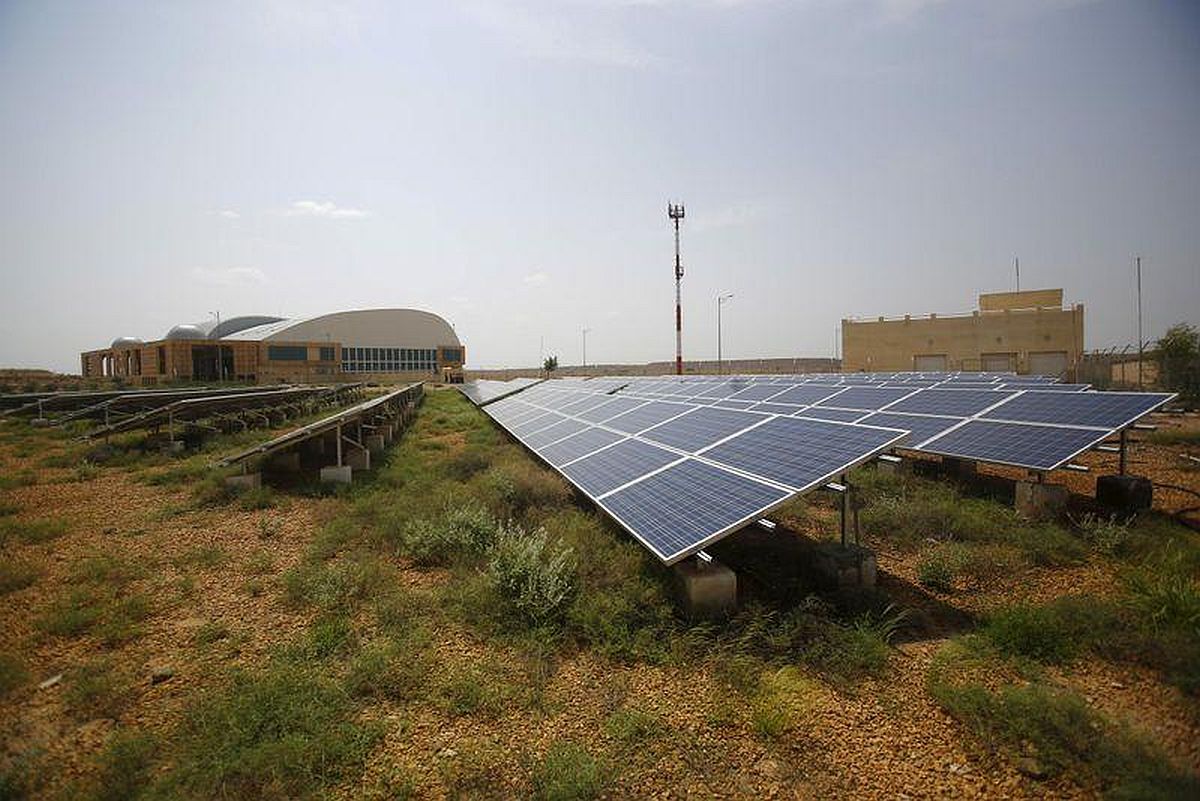
Jakarta, Feb 9 (AP) A presidential election in Indonesia, the world's third-largest democracy, is highlighting choices to be made as the country seeks to profit from its rich reserves of nickel and other resources that are vital to the global transition away from fossil fuels.
President Joko Widodo capitalised on Indonesia's abundant nickel, coal, oil and gas reserves as he led Southeast Asia's biggest economy through a decade of rapid growth and modernisation that vastly expanded the country's networks of roads and railways.
Increasingly, voters are demanding that the men vying to succeed him address the tradeoffs between fast growth and a healthy environment in the world's fourth most populated country.
INDONESIA'S COMMODITY BOOM
Indonesia has the world's largest reserves of nickel a critical material for electric vehicles, solar panels and other goods needed for the green energy transition.
It's also the biggest producer of palm oil, one of the largest exporters of coal and a top producer of pulp for paper. It also exports oil and gas, rubber, tin and other resources.
In recent years, surging commodity prices have fuelled fast economic growth and helped Indonesia become a middle-income country. That growth is expected to slow as the boom loses steam, according to a World Bank report.
The downside of rapid expansion of logging, mining and other resource extraction has been razing of rainforests, pollution of coastal waters and waterways and smoggy cities.
JOKO WIDODO'S TRACK RECORD
President Joko Widodo who must step down after a second term due to a constitutional two-term limit prioritised economic growth, welcoming foreign investments in manufacturing and other industries and building infrastructure such as the country's first high-speed railway.
He also has championed his legacy project of moving the capital from traffic-congested, polluted Jakarta, which is flooding as the city of 11 million sinks, to Nusantara, a new city under construction on the tropical island of Borneo.
To speed up development of key industries, Widodo banned exports of certain raw commodities such as nickel and bauxite, which is used to make aluminum, obliging companies to build refineries to process and add value to what Indonesia sells to the rest of the world.
The candidates to take his place are Defense Minister Prabowo Subianto; the former governor of the capital Jakarta, Anies Baswedan; and the governor of Central Java, Ganjar Pranowo. All say they will continue that strategy, with slight variations, said Josua Pardede, chief economist at Indonesia-based Permata Bank.
The export ban has its drawbacks. Under Widodo, Indonesia is negotiating a critical materials trade deal so that it can benefit from US tax credits for electric vehicles that extend to US free-trade agreement partners. But Washington would expect Indonesia to relax its limits on exports.
Economists say the country needs a more open trade and investment environment to transform itself into a manufacturing hub for electric vehicle batteries and other competitive products. As EV batteries need more than just nickel, Indonesia must engage with many countries, including those with internationally-oriented automotive industries, said Arianto Patunru, an economist at Australian National University.
ENVIRONMENTAL CONCERNS
The project to move the capital has been lambasted by environmentalists and Indigenous communities that say the mammoth undertaking will degrade the environment, further shrink habitats of endangered species such as orangutans and displace Indigenous people that rely on the land for their livelihoods.
It's also a drain on national finances.
There seems to be very little appetite from foreign investors towards (the new capital), said Patunru. That means, if the government forces its development, it will involve inefficient and unproductive allocation of resources.
Another campaign issue: food estate programs, massive plantations the government set up to fortify national food security. They have come under fire for causing massive deforestation and land conflicts with Indigenous peoples, and for their ineffectiveness.
Presidential candidates Subianto and Pranowo say they are committed to the programmes. Baswedan has criticised them for neglecting local community needs and failing to grow suitable crops, pointing to the failure of cassava fields at a food estate in Kalimantan.
Many voters believe Indonesia needs a greener and more inclusive approach to growth, says Bhima Yudhistira Adhinegara, executive director of the Indonesia-based Center of Economic and Law Studies.
INDONESIA'S ENERGY TRANSITION
In 2021, coal-rich Indonesia was the world's ninth-largest source of carbon emissions that are causing global warming, according to a report by the International Energy Agency.
The country's transition towards cleaner energy which is being kick-started by a $20 billion Just Energy Transition Partnership deal is supported by all three presidential candidates, with each outlining different strategies to wean the country off fossil fuels.
But prospects for significant changes seem uncertain since the country, instead of switching off coal-fired power plants, is building new ones to power refineries and metal smelters in industrial parks across the country.
The full transformation towards more sustainable development in Indonesia is still a long way ahead, said Pardede of Permata Bank.
INFLATION, JOB CREATION AND POVERTY REDUCTION
Other voter concerns include job creation, poverty reduction and managing inflation.
While Indonesia's unemployment has been declining to pre-pandemic levels, the amount of middle-class jobs has dropped from 14% to 9% of total employment. Underemployment, self-employment an the amount of informal workers also rose between 2019-2023, according to the World Bank. Youth employment also remains relatively high, with 17% of those aged 20-24 unemployed in 2022.
That could hinder Indonesia's aim to become a achieve high-income country status by 2045. Indonesia's gross national income per capita reached US$4,580 in 2022. A high-income economy is defined by the World Bank as a country with a gross national income per capita of US$13,845 or more in 2022.
While the World Bank predicts Indonesia's inflation will ease, there is some upward pressure on the cost of basic food items due to El Nino, which is disrupting food production globally.
President Joko Widodo capitalised on Indonesia's abundant nickel, coal, oil and gas reserves as he led Southeast Asia's biggest economy through a decade of rapid growth and modernisation that vastly expanded the country's networks of roads and railways.
Increasingly, voters are demanding that the men vying to succeed him address the tradeoffs between fast growth and a healthy environment in the world's fourth most populated country.
INDONESIA'S COMMODITY BOOM
Indonesia has the world's largest reserves of nickel a critical material for electric vehicles, solar panels and other goods needed for the green energy transition.
It's also the biggest producer of palm oil, one of the largest exporters of coal and a top producer of pulp for paper. It also exports oil and gas, rubber, tin and other resources.
In recent years, surging commodity prices have fuelled fast economic growth and helped Indonesia become a middle-income country. That growth is expected to slow as the boom loses steam, according to a World Bank report.
The downside of rapid expansion of logging, mining and other resource extraction has been razing of rainforests, pollution of coastal waters and waterways and smoggy cities.
JOKO WIDODO'S TRACK RECORD
President Joko Widodo who must step down after a second term due to a constitutional two-term limit prioritised economic growth, welcoming foreign investments in manufacturing and other industries and building infrastructure such as the country's first high-speed railway.
He also has championed his legacy project of moving the capital from traffic-congested, polluted Jakarta, which is flooding as the city of 11 million sinks, to Nusantara, a new city under construction on the tropical island of Borneo.
To speed up development of key industries, Widodo banned exports of certain raw commodities such as nickel and bauxite, which is used to make aluminum, obliging companies to build refineries to process and add value to what Indonesia sells to the rest of the world.
The candidates to take his place are Defense Minister Prabowo Subianto; the former governor of the capital Jakarta, Anies Baswedan; and the governor of Central Java, Ganjar Pranowo. All say they will continue that strategy, with slight variations, said Josua Pardede, chief economist at Indonesia-based Permata Bank.
The export ban has its drawbacks. Under Widodo, Indonesia is negotiating a critical materials trade deal so that it can benefit from US tax credits for electric vehicles that extend to US free-trade agreement partners. But Washington would expect Indonesia to relax its limits on exports.
Economists say the country needs a more open trade and investment environment to transform itself into a manufacturing hub for electric vehicle batteries and other competitive products. As EV batteries need more than just nickel, Indonesia must engage with many countries, including those with internationally-oriented automotive industries, said Arianto Patunru, an economist at Australian National University.
ENVIRONMENTAL CONCERNS
The project to move the capital has been lambasted by environmentalists and Indigenous communities that say the mammoth undertaking will degrade the environment, further shrink habitats of endangered species such as orangutans and displace Indigenous people that rely on the land for their livelihoods.
It's also a drain on national finances.
There seems to be very little appetite from foreign investors towards (the new capital), said Patunru. That means, if the government forces its development, it will involve inefficient and unproductive allocation of resources.
Another campaign issue: food estate programs, massive plantations the government set up to fortify national food security. They have come under fire for causing massive deforestation and land conflicts with Indigenous peoples, and for their ineffectiveness.
Presidential candidates Subianto and Pranowo say they are committed to the programmes. Baswedan has criticised them for neglecting local community needs and failing to grow suitable crops, pointing to the failure of cassava fields at a food estate in Kalimantan.
Many voters believe Indonesia needs a greener and more inclusive approach to growth, says Bhima Yudhistira Adhinegara, executive director of the Indonesia-based Center of Economic and Law Studies.
INDONESIA'S ENERGY TRANSITION
In 2021, coal-rich Indonesia was the world's ninth-largest source of carbon emissions that are causing global warming, according to a report by the International Energy Agency.
The country's transition towards cleaner energy which is being kick-started by a $20 billion Just Energy Transition Partnership deal is supported by all three presidential candidates, with each outlining different strategies to wean the country off fossil fuels.
But prospects for significant changes seem uncertain since the country, instead of switching off coal-fired power plants, is building new ones to power refineries and metal smelters in industrial parks across the country.
The full transformation towards more sustainable development in Indonesia is still a long way ahead, said Pardede of Permata Bank.
INFLATION, JOB CREATION AND POVERTY REDUCTION
Other voter concerns include job creation, poverty reduction and managing inflation.
While Indonesia's unemployment has been declining to pre-pandemic levels, the amount of middle-class jobs has dropped from 14% to 9% of total employment. Underemployment, self-employment an the amount of informal workers also rose between 2019-2023, according to the World Bank. Youth employment also remains relatively high, with 17% of those aged 20-24 unemployed in 2022.
That could hinder Indonesia's aim to become a achieve high-income country status by 2045. Indonesia's gross national income per capita reached US$4,580 in 2022. A high-income economy is defined by the World Bank as a country with a gross national income per capita of US$13,845 or more in 2022.
While the World Bank predicts Indonesia's inflation will ease, there is some upward pressure on the cost of basic food items due to El Nino, which is disrupting food production globally.
Read More On:
DISCLAIMER - This article is from a syndicated feed. The original source is responsible for accuracy, views & content ownership. Views expressed may not reflect those of rediff.com India Limited.
You May Like To Read
TODAY'S MOST TRADED COMPANIES
- Company Name
- Price
- Volume
- GTL Infrastructure
- 2.93 ( -4.87)
- 226206286
- IFL Enterprises
- 1.30 (+ 4.84)
- 81461564
- Vodafone Idea L
- 16.79 (+ 0.66)
- 67447398
- NCL Research
- 0.95 ( -4.04)
- 31996628
- Franklin Industries
- 3.73 (+ 3.32)
- 21511209
MORE NEWS

Navi Mumbai Airport ILS Signal Testing Begins
The Airports Authority of India (AAI) has begun ILS signal testing at the...

Air India VRS for Non-Flying Staff Ahead of...
Air India has announced a voluntary retirement scheme (VRS) and voluntary separation...
Fisher Groups Oppose WTO Fisheries Subsidy Talks
Small-scale fisher groups from India, Indonesia, and Bangladesh demand WTO keep...



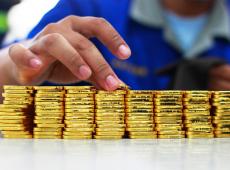
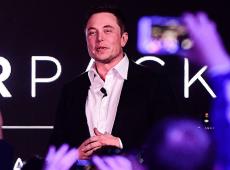

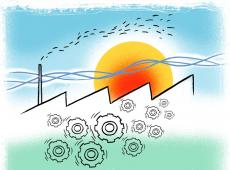
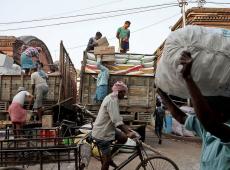
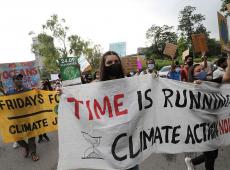
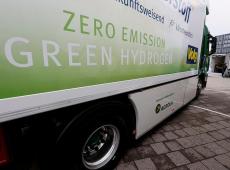
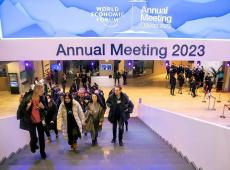
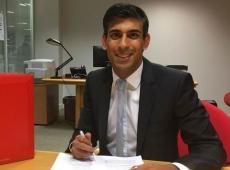
 © 2024 Rediff.com India Limited. All rights reserved.
© 2024 Rediff.com India Limited. All rights reserved.